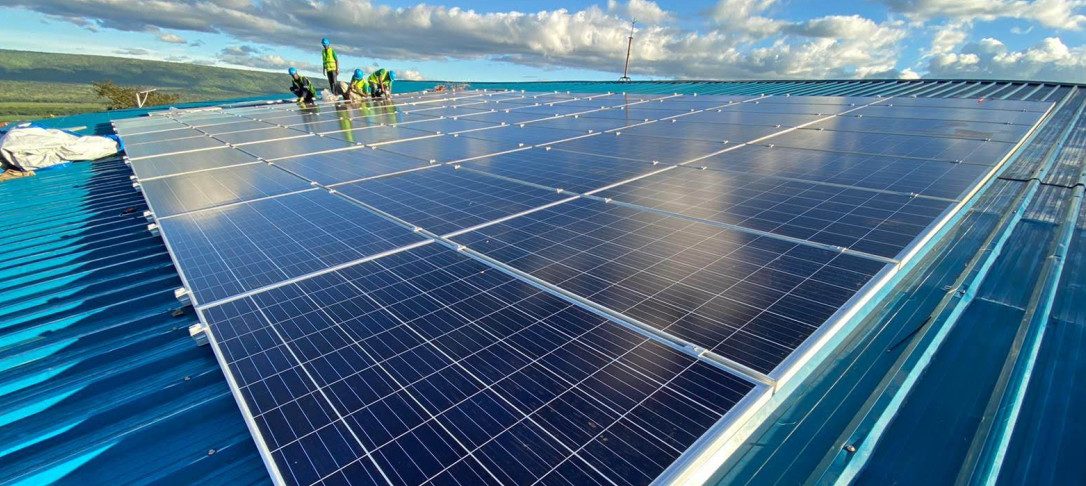Top of Mind: Happy Sunday!
Africa has 99 problems, and electricity is top 2.
Governments and private sector interests have spent billions of dollars trying to rectify this problem – with bare luck. Now, companies and startups are raising money to replicate previous interventions.
One of the leading companies in this space is Husk Power, and they raised good money to solve this problem.
Hope is on the horizon.
Hope is on the horizon.
Let’s get into it.
One big thing:
- Light up, Africa.

The short: Husk Power Systems raised a $103m Series D round ($43m equity, $60m debt) to supercharge growth and unlock the full economic and social potential for a generation of Africans and Asians.
Half a billion in the dark: Statista documented over 597 million people in sub-Saharan Africa without access to electrical grids, and over 70% generating electricity through alternative means – entirely out of pocket.
Governments across the continent have made moves over the last decade to provide electricity to their citizens, with the ultimate goal of bringing them out of poverty and stimulating economic activity.
Enter mini-grids: A mini-grid is a set of small-scale electricity generators and energy storage systems intricately interconnected to form a distribution network.

The magic of mini-grids lies in its ability to supply electricity to a small, localized group of customers while operating independently from the national transmission grid.
What makes mini-grids exceptional is the ability to serve a broad spectrum of customers.
These customers span across startups and commercial enterprises, which power economic activity.
Semi-industrial entities like telecom towers (for stronger internet connections) and power plants are the biggest beneficiaries of mini-grids.
Let’s scale: Now, why are mini-grids particularly well-suited for Africa?
The answer lies in their adaptability and scalability.
It’s more complex and expensive to scale access to centralized power grids due to their remote locations, but mini-grids can be deployed quickly and cost-effectively.
Plus, mini-grids offer the opportunity to leapfrog traditional grid expansion, providing power where it’s needed most and fostering economic development along the way.
India’s success: Founded in 2007 by University of Virginia business students Chip Ransler and Manoj Sinha, Husk Power Systems built its business by converting rice husks (waste) into gas that powered turbines to generate electricity.
The following year (during the global financial recession), they beat out over 1,000 competitors to win the Draper Fisher Jurvetson and Cisco-sponsored Global Business Plan Competition. by converting rice husks (waste) into gas that powered turbines to generate electricity.
The company won $250,000 for their seed round.
The round paid for mini power plants, delivering electricity to 2,000 to 4,000 inhabitants in India’s Rice Belt, which has loads of leftover husks from rice milling.
The Nigerian dream: Husk debuted in Nigeria with solar-powered mini-grids and AI-backed technology to scale its experiment to benefit small-medium businesses, startups and more than 50,000 people.
The AI tech simulates demand patterns and data from a historical perspective to predict future demand because customer patterns are unpredictable.
Real people, real stories: We’ve covered the numbers, but what does this intervention mean for Africans and businesses disproportionately affected by lack of electricity?
- Businesses spend a large portion of their revenue on alternative power supply.
- Startups in agricultural industries lose money on food preservation and distribution.
- Hospitals can’t function properly.
Everything stops when the power goes out.
Husk’s mini-grids are cutting through these challenges.
Businesses have recorded 30% savings on energy costs, hospitals and essential services are operating for longer, increasing community health, and security has dramatically improved with the installation of street lights.
Critically, these mini-grids are re-fueling entrepreneurship on the continent.
Entrepreneurs with transformational ideas are no longer limited by the lack of affordable energy, allowing them to get off the ground quicker.
Scaling in Africa: With this new funding, Husk plans to scale its fleet of mini-grids with an addition of over 1,400 new mini-grids.
Aside from their locations in Nigeria, they’re expanding into other countries in the region, like Uganda, Burkina Faso, Tanzania, and more.
This expansion is expected to directly impact 7.7 million people and 225 thousand businesses across the continent within the next five years as part of its Africa Sunshot initiative.
Two-thirds of their new funding will go towards their Africa-focused expansion plans.
However, to truly reach their expansion targets, Husk expects to raise an additional $400m.
It’s heating up, folks: Husk isn’t alone in this. More African startups have raised money to solve the electricity problem.
- Nuru, DRC raised $40m to drive metro-grid scaling in the Democratic Republic of the Congo.
- WidEnergy, Zambia raised an undisclosed amount of funding to expand affordable energy access with an innovative pay-as-you-go model to provide solar-powered products and appliances.
- Solarise Africa raised -$40m to expand its electrification strategy to Kenya.
Final thoughts: The private sector and venture capital firms are investing heavily in startups and companies building critical infrastructure to connect more Africans to electricity.
The goal is to accelerate economic activity and power the growth of businesses on the continent.
Scaling access to electricity in Africa will be a slow burn, but we’ve spent our lifetimes hoping for progress. As the saying goes – better late than never.
Thanks for reading! We’d love to hear your thoughts about this week’s issue.
Please respond directly to this email or find me on Twitter @fatuogwuche 🙂
And give us a follow on Twitter @bigtechthisweek.

